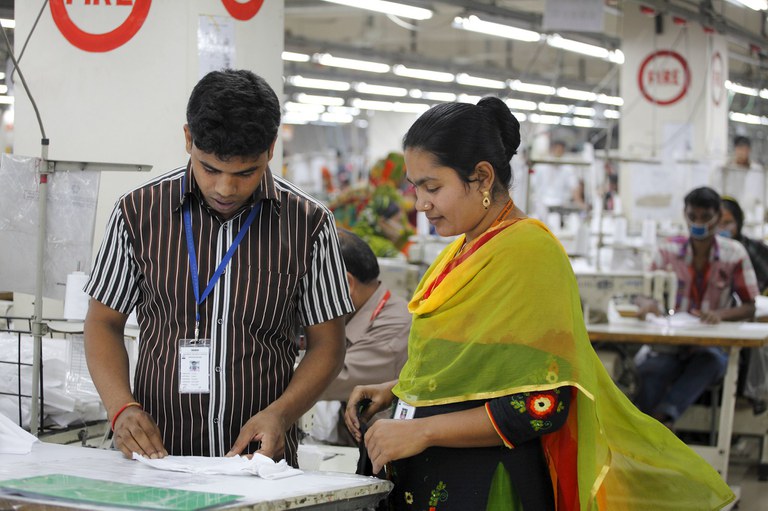Explainer: What is the Dindigul Agreement?
The Dindigul Agreement is a legally binding agreement to end gender-based violence and harassment at the Eastman factories in Dindigul, a city in the Indian state of Tamil Nadu. The agreement was signed in April 2022 by the Indian women's and Dalit-led union TTCU (Tamil Nadu Textile and Common Labour Union) and the garment and textile manufacturer Eastman Exports.
In addition, TTCU, the Global Labor Justice-International Labor Rights Forum (GLJ-ILRF) and Asia Floor Wage Alliance (AFWA) also signed a legally binding agreement along with H&M, and later U.S companies Gap Inc., and PVH. The agreement requires the brand signatories to support and enforce the TTCU-Eastman Exports agreement, which outlines commitments related to labour and worker rights. If Eastman Exports fails to comply with the agreement, the brand signatories are obligated to impose business consequences on them.
Together, these interlocking agreements form the Dindigul Agreement - an "enforceable brand agreement" (EBA) in which multinational companies legally commit to workers and allies to use their supply chain relationships to support a worker- or union-led program in specific factories or worksites.
Which agreements is it based on?
The Dindigul Agreement relies on national and international labour standards and best practices, including International Labour Organization Convention 190 (Violence and Harassment Convention), Convention 87 (Freedom of Association and Protection of the Right to Organize Convention) and Convention 98 (The Right to Organize and Collective Bargaining Convention); the OECD Guidelines for Multinational Enterprises and the OECD’s garment and footwear sector guidance; the national Law of India (strengthening workplace committees required by the 2013 POSH Act (Prevention of Sexual Harassment); and best practices from unions and women’s groups including the AFWA Safe Circle approach for eliminating GBVH.
What makes the Dindigul agreement so special?
It is the first legally binding agreement on Gender and caste-based violence in Asia, involving brands, supplier factory, local trade union and global labor stakeholders.
Which innovative program does the Dindigul agreement include?
The agreement includes an innovative women worker & trade union led GBVH prevention and remediation program that focuses on developing worker Shop Floor Monitors ( women workers who have special protections from retaliation & can take action to remediate GBVH), regular union-management dialogue, survivor-centered multi-tiered GBVH remediation program, and regular trainings of all workers and management. It puts into practice the AFWA Safe Circle Approach to Eliminate GBVH.
What is the Safe Circles program all about?
The AFWA Safe Circle Approach is a bottom-up approach to ending gender-based violence and harassment (GBVH) by engaging women workers as agents of change at the production line level. This approach involves not only potential victims, but also bystanders and perpetrators in regular face-to-face, small group engagement processes designed to address behavioral violence on production lines in garment factories. Click here to learn more.
Who is managing the Safe Circles program?
The program is led by the Tamil Nadu Textile and Common Labor Union (TTCU), an independent women led union. The Asia Floor Wage Alliance and GLJ-ILRF have joined as signatories, and are supporting the implementation of the Agreement. To understand more on the implementation process, read here.

